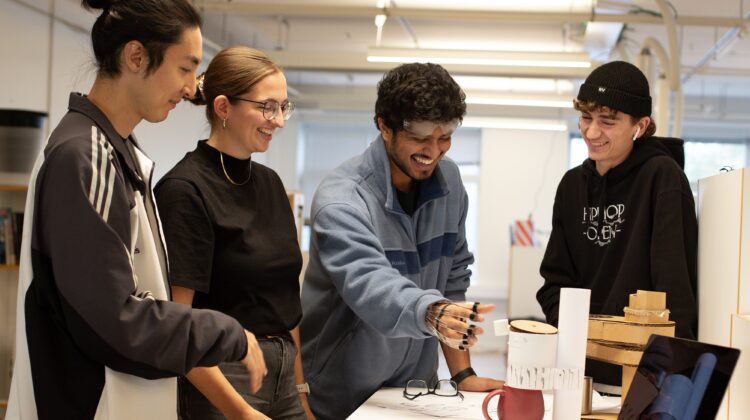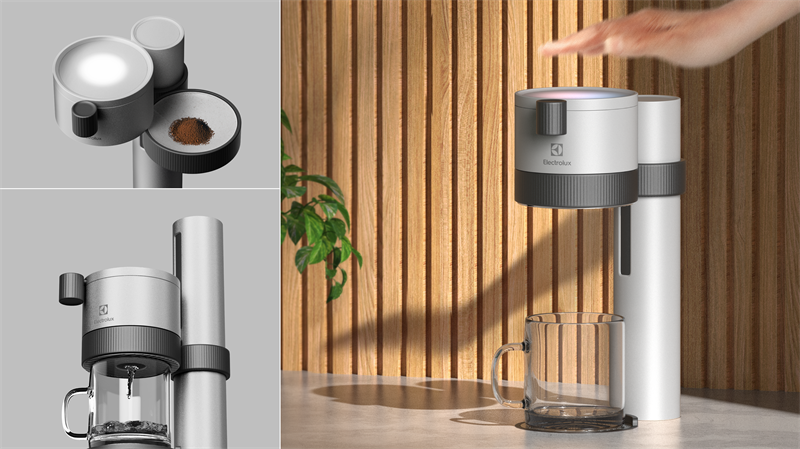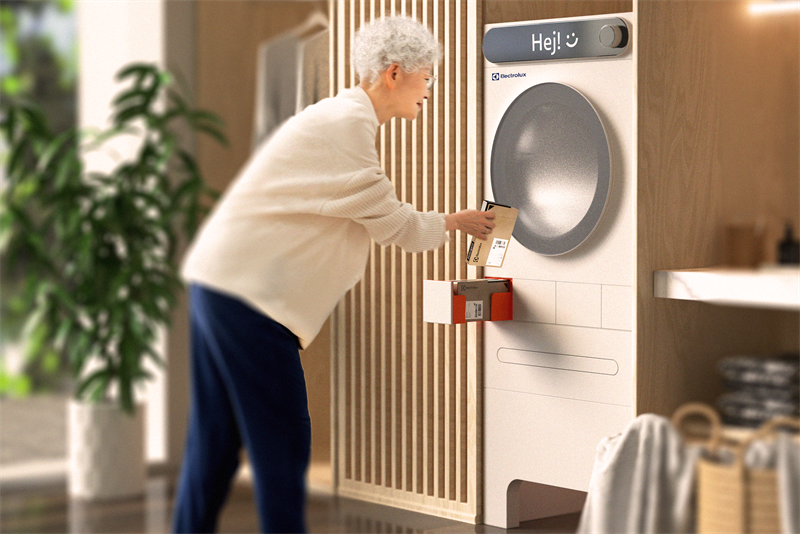
Design students at the prestigious Umeå Institute of Design (UID) in Sweden have created home appliance concepts for people with disabilities as part of a design sprint challenge organised by Electrolux Group.
This is the seventh year of Electrolux Group’s cooperation with UID, in which teams of advanced product design students develop ideas in just three weeks. Under the theme ‘Design for all abilities’, four teams created unique products that are easier to use for people with disabilities that ranged from deteriorating eyesight to arthritis.
‘These talented students really stepped into the consumer’s shoes,’ said Timo Mashiyi-Veikkola, Electrolux Group’s head of design research. ‘They came up with creative solutions that not only made it easier for people with a range of disabilities to use, but also considered safety and aesthetics. These fresh ideas are inspiring and suit our Human Touch design philosophy. One important element of that is design with empathy and quality.’
Among the concepts was ELVA, a semi-built-in hot beverage maker designed to reduce the risk of burns and to require very little arm strength. Lowering the pouring module minimises the risk of hot water spilling, and the user selects the desired water temperature with a simple slider. Signals are acoustic and visual, not textual.

Another was ALVA, a dehumidifier whose top-positioned water tank enables effortless refilling, while an ergonomic handle ensures a secure grip. The tank pops up when full and has a flat side so that it can be set down for emptying. The control interface is simplified, it can be operated by voice commands and a companion app enables remote operation. It even doubles as a drying rack.
With a top-loading mechanism, the EASE oven eliminates the physical strain of bending and lifting required by traditional ovens. Users slide dishes onto a tray at countertop level and the oven lowers it into the heat cavity. It features single-button control, high-contrast lighting and clear visual indicators to enable an easier, safer cooking experience.
And AUTOCARE reduces the effort required to do laundry with a large, tactile knob, a font designed for the visually impaired and an intelligent interface that remembers favourite cycles and responds to voice activation. It features an auto-dosing system that uses detergent sheets rather than heavy liquid and a lint compressor for less frequent emptying.

‘It’s always rewarding to work with Electrolux Group on these design sprints,” said Thomas Degn, associate professor and director of the MFA Advanced Product Design Program at UID. ‘It’s a real-world test of our students’ skills and helps us all imagine a better world through design.’
The collaboration’s previous themes have included designs for an artificial-intelligence-assisted home robot (2023), single people living in small spaces (2022) and multi-generational homes (2021).


